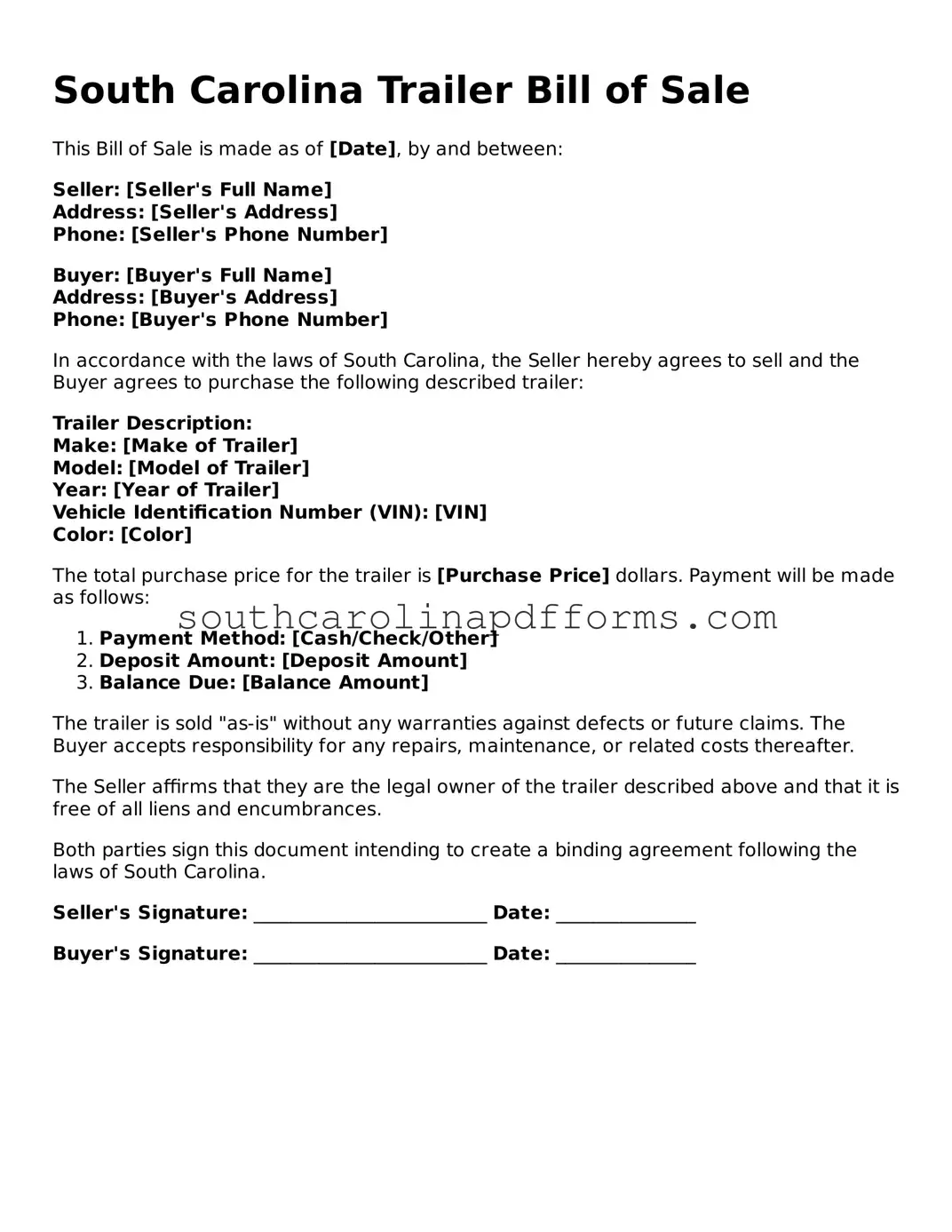Attorney-Approved South Carolina Trailer Bill of Sale Document
The South Carolina Trailer Bill of Sale form is a legal document used to transfer ownership of a trailer from one party to another. This form provides essential details about the trailer, including its identification and the parties involved in the sale. Completing this document ensures that both the buyer and seller have a clear record of the transaction.
Access Trailer Bill of Sale Here
